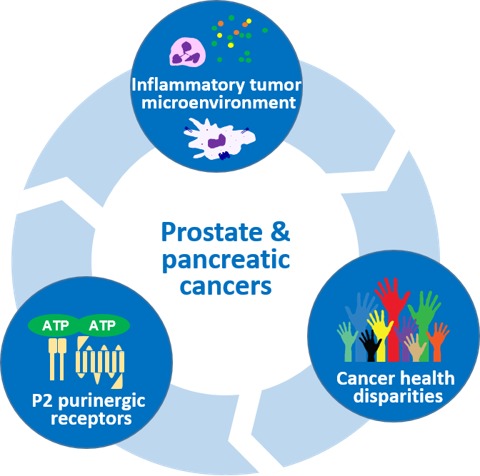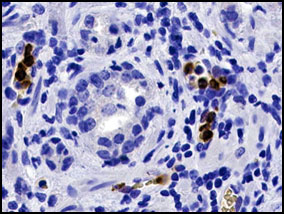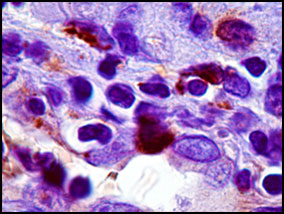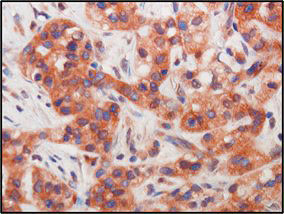
Immunobiological factors that contribute to cancer health disparities in racial/ethnic minorities and underserved populations

Prostate Cancer: Black men are 2-3 times more likely to die from prostate cancer than their White counterparts in the United States. Similarly, men in sub-Saharan Africa and countries of the African Diaspora have more than twice the age-standardized rates of mortality compared to the United States, the UK, and other parts of the world. Previous studies suggest that inflammation related genes are overexpressed in tumors from Black men. We use molecular pathology techniques to characterize the inflammatory landscape of prostate cancer tissues from patients with varied genetic ancestry. We aim to identify immunobiological factors that are associated with prostate cancer health disparities.

Pancreatic Cancer: Pancreatic cancer incidence and mortality are highest among Black men and women in the United States. Little is known about the oncobiological risk factors that drive, exacerbate, or predict pancreatic cancer specifically among Black population. Our lab aims to develop a resource of essential molecular tools to improve the investigation of pancreatic cancer in a diverse patient population.
P2 purinergic receptors in cancer initiation and disease aggressiveness

Prostate Cancer: We identified the P2X4 purinergic receptor as overexpressed in prostatic intraepithelial neoplasia (PIN), in primary and metastatic cancer, in cancer from White men compared to cancer from Black men, and in Erg positive or PTEN loss cancer. Further, increased P2X4 protein expression in is associated with an increased risk of metastasis. Our work also demonstrates that P2X4 receptor drives PCa cell growth, migration, invasion, and tumor development. We use translational approaches aimed at therapeutically targeting P2 purinergic receptors in patients with cancer.

Pancreatic Cancer: Our work is aimed at the Identification of P2 purinergic receptors in pancreatic ductal adenocarcinoma and pancreatic cancer pre-cursor tissues that have clinical significance and potential for therapeutic targeting.
